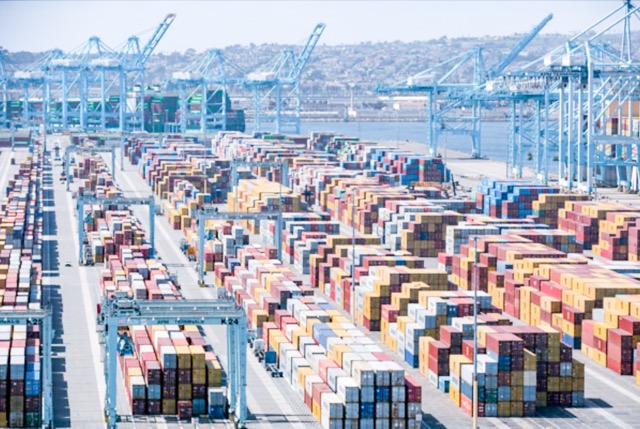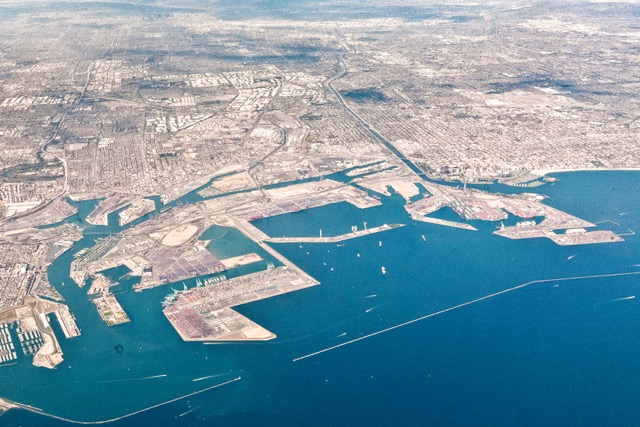June Cargo at The Ports
Combined Sources – Side-by-side, two of the busiest ports in the world had very different traffic results in June. Los Angeles reports its best June ever, while Long Beach says its cargo traffic was down more than 16%.
Both predict a spike in the short term. But if the on-again, off-again, on-again, off, on, etc. tariffs are enacted, business will plunge.
Port of LA CEO Gene Seroka attributes the June surge to, “Some importers are bringing in year-end holiday cargo now ahead of potential higher tariffs later in the year,” Seroka said during an online briefing. “July may be our peak season month as retailers and manufacturers bring orders in earlier than usual, then brace for trade uncertainty.”
An outlook that Long Beach shares.
“We’re anticipating a cargo surge in July as retailers stock up on goods ordered during the 90-day pause placed on tariffs and retaliatory tariffs,” Port of Long Beach CEO Mario Cordero said in a statement.
“The Port of Long Beach is prepared to handle the influx by tracking trade moving through the harbor with the Supply Chain Information Highway, our digital solution to maximize visibility and efficiency in cargo movement,” he added.
What had been a relatively quiet pause of hyperbole and market reactions during the 90-day pause, sparked again in the last two weeks as the July 9 deadline came and went, with President Donald Trump moving the goal post to August 1.
That was followed by proclamations of varying impending high tariffs imposed on Mexico, Canada, and the European Union, among others. Battle-weary markets appear to be waiting it out before reacting since the playbook has become more familiar.
But small businesses are far different players from the markets, and the uncertainty can be paralyzing.
During the ports’ briefing on Monday, President of Yedi Houseware Bobby Djavaheri spoke on the impacts tariffs have on small and mid-sized businesses.
The family-owned business was founded by Djavaheri’s father in 1984.
According to Djavaheri, his business, like others, suffered during the coronavirus pandemic and what he called the “ocean freight crisis.”
“Containers were nowhere to be found, some were being delayed,” Djavaheri said. “My containers fell off a ship, some ships caught on fire, and it was absolute mayhem.”
Under the Biden administration, he noted his business was “doing fine.”
“Now, with President Trump’s second term, we anticipated tariffs. We anticipated maybe 10-20% maximum,” he added. “We didn’t think anything after that would be even possible.”
The costs of the tariffs on stainless steel, appliances and other common goods have posed challenges for Djavaheri.
“We’re going to have losses for sure,” he added.
With an “eventually, it too will pass” attitude, Long Beach is striking a posture of focusing on the long-term.
“No matter the economic situation, our facilities, dockworkers and marine terminal operators continue to make this the premier gateway for trans- Pacific goods movement,” Long Beach Harbor Commission President Bonnie Lowenthal. “Over the long term, we’re investing in infrastructure projects to keep cargo moving efficiently and sustainability to preserve our status as the Port of Choice.”
For More Economic News Visit www.zapinin.com/economy



